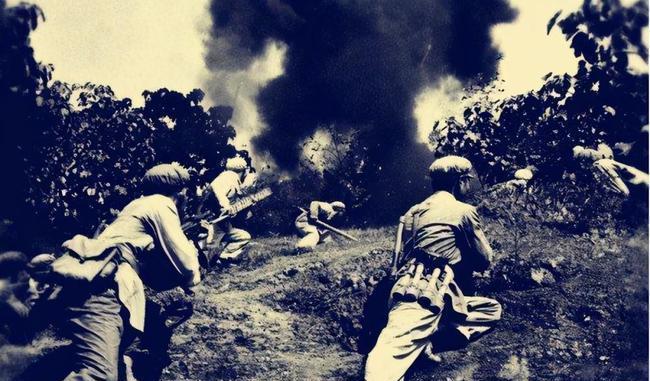The Battle of Xifu was an offensive operation conducted by our Northwest Field Army against the Kuomintang army in the western part of Shaanxi Province and the eastern part of Gansu Province in April 1948.

In April 1948, under the command of General Peng Lao, the Northwest Field Army, following the great victory in Yichuan, conquered Baoji, directly attacked Hu Zongnan's Northwest General Supply Station, and captured a large amount of military supplies. However, the 6th Column Teaching Brigade, which was responsible for the cover of the campaign, was heavily besieged by the enemy at Tunzi Town, and the situation was very critical.
In order to rescue the trapped teaching brigade, Noji ordered the new 4th Brigade to rush to tunzi town to join the 1st Independent Brigade in reinforcements. The new 4th Brigade, which received the order, immediately led its troops to run more than 30 miles and rushed to tunzi town to break the siege. In the tight encirclement, the soldiers of the New 4th Brigade, under the leadership of the brigade commander, cut a gap and received the sixth column, but the New 4th Brigade fell into the heavy attack of the "Green Horse".
"Qingma" refers to Ma Bufang's unit in Qinghai, which is a unit with relatively strong combat effectiveness in the northwest, whose style is barbaric, fierce, and tenacious, and which suffered heavy losses during the Red Army's western expedition.
In the face of a strong enemy, the New 4th Brigade is certainly not a breed.
The brigade commander of the New 4th Brigade was named Cheng Yuechang, an old Red Army veteran who joined the revolution in 1929, who had experienced the Red Fourth Front's Western Expedition to Sichuan and Shaanxi, the Long March, and the War of Resistance Against Japan, and was a member of the command of Chen Geng and Wang Jinshan. In 1943, when he was the commander of the 16th Regiment, he led his troops to annihilate the "Imperial Army Officers Field Observation Group" composed of more than 120 young officers, and for this he was also invited and praised by the chairman and Zhu Laozong.
Later, Cheng Yuechang's 16th Regiment was incorporated into the 6th Column New 4th Brigade of the Jinsui Military Region, and Cheng Yuechang was also promoted to the commander of the New 4th Brigade.
In the face of a strong enemy, Cheng Yuechang organized several breakthroughs, but still failed to break through the enemy's encirclement.
In such a critical situation, Cheng Yuechang ordered the 16th Regiment to organize a commando company, led by himself. During the battle, the commander of the Cheng Brigade was seen holding a machine gun and leading the commando team to open the way in front, and most of the troops broke out until dark, but more than 250 wounded and sick people in the brigade headquarters were under siege. Cheng Yuechang concentrated all the leggings of the troops, formed a 300-meter-long rope, and fell off the cliff late at night, finally saving all the wounded and sick and achieving a complete victory in the breakthrough.
After they broke through and returned to the border area for reorganization, they were praised by Xu Liqing, political commissar of the column: Without the bloody sacrifice of the new 4th Brigade, there would be no safe transfer of the main force and the headquarters. The style of the leading comrades of the New 4th Brigade is worth learning from the whole army.
In January 1949, the whole army was reorganized, and the new 4th Brigade was reorganized into the 17th Division of the 6th Army of the 2nd Corps of the First Field Army, with Cheng Yuechang as the division commander. After that, Cheng Yuechang led his troops to participate in the liberation of Xi'an, the Battle of Fumei and the Battle of Lanzhou, and in 1949 led his troops to march into Xinjiang, chasing down bandits and reclaiming land. In 1955, Cheng Yuechang was awarded the rank of major general.
Because General Cheng Yuechang had been fighting on the battlefield for a long time, he was born into death, and his body was even more scarred and overworked. The grueling years drained his energy and eventually he died on May 1, 1961, at the age of 50.